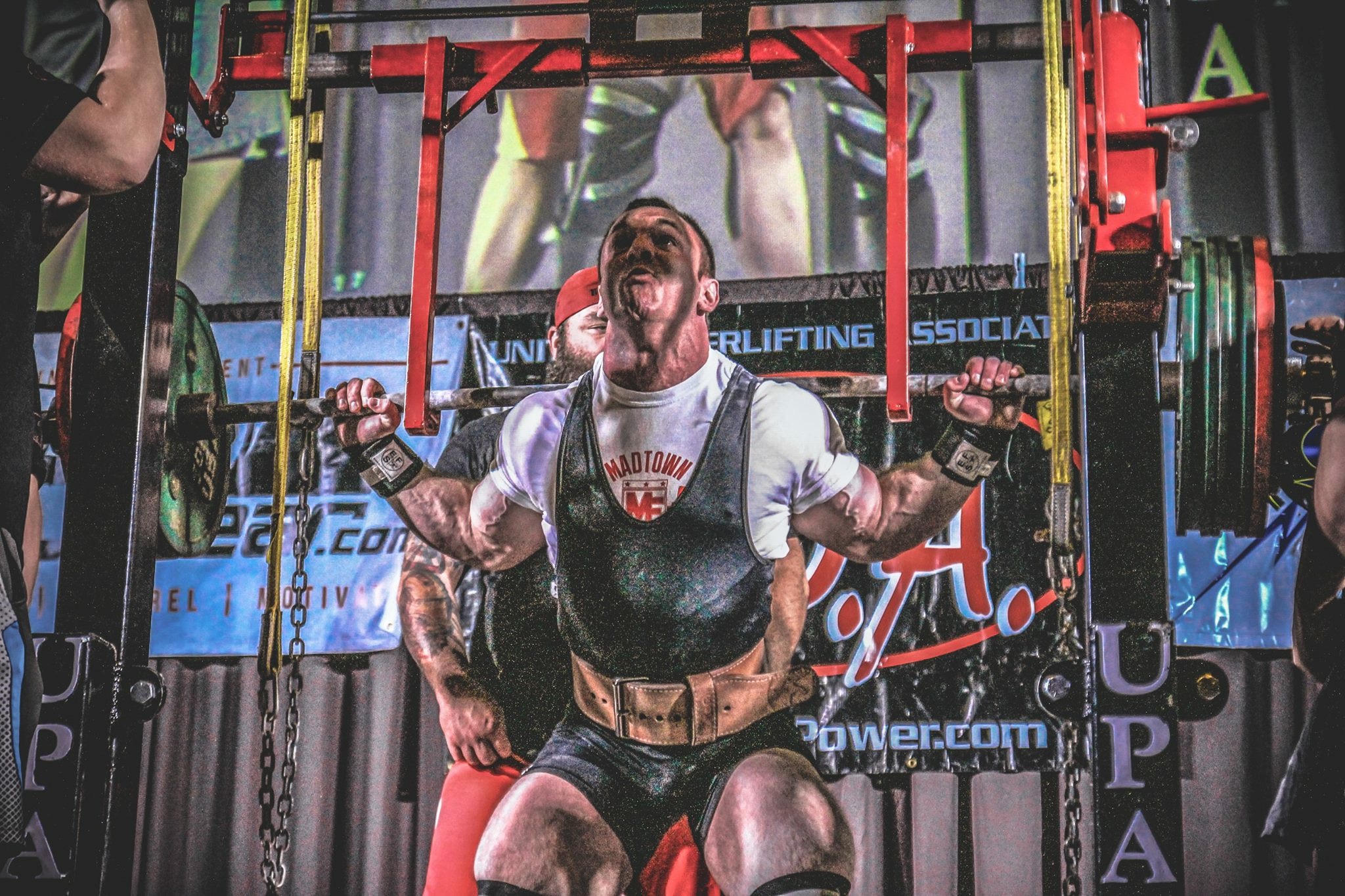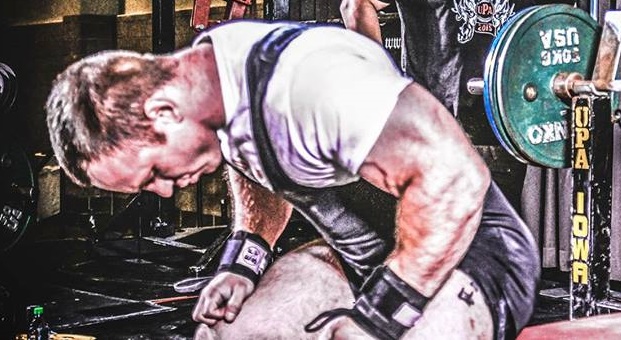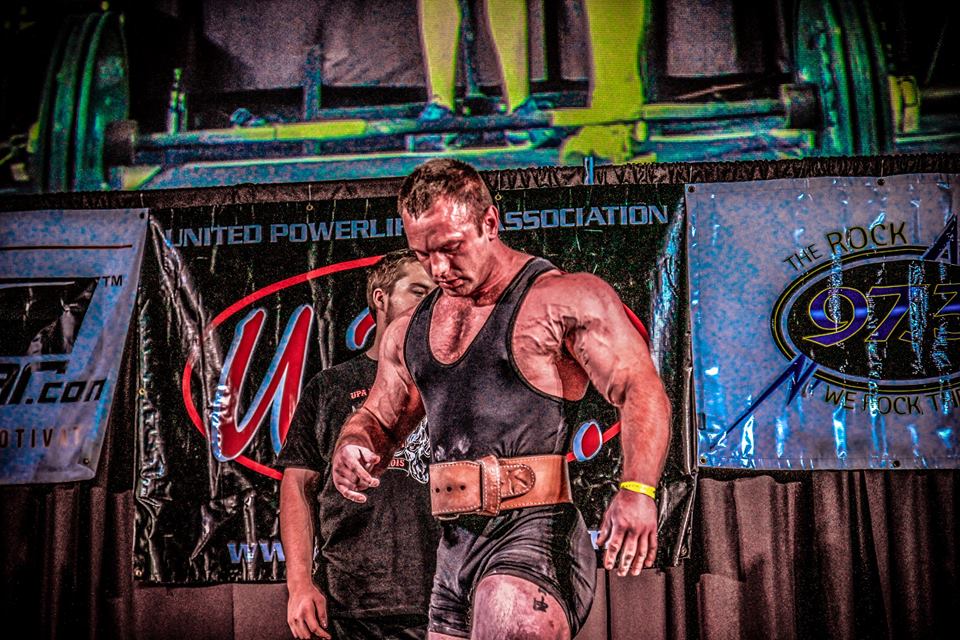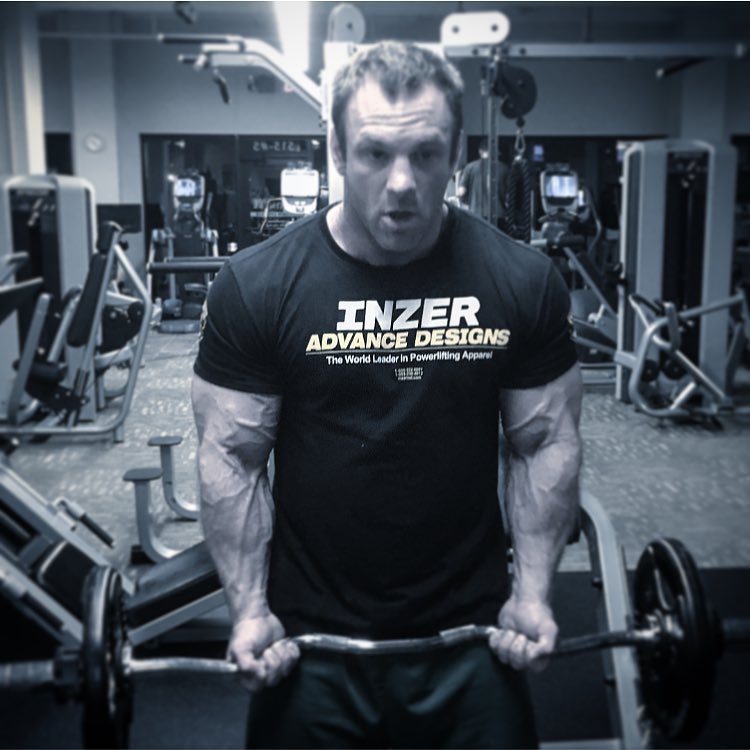
06 Oct Q&A for the 10/20/Powerbuilder
By: Tucker Loken
After the seminar with Brian in Grand Rapids the other week, it got me thinking as to what are the most common questions I get from powerlifters regarding bodybuilding type training, nutrition, and how to make it all work with powerlifting. The following are some that I got asked at the seminar, as well as the common ones I talk with lifters about at the gym.
[wa-wps]
Can you be pretty and strong?
Q: As a bodybuilder, are you worried at all that powerlifting will affect your physique and make your waist wider?
A: No, not at all actually, for a couple reasons. Powerlifters are big and thick, but is it the chicken or the egg? NBA players are tall, is that because they play basketball, or are they good at basketball because they are tall? Similarly, most powerlifters probably saw that they were naturally stronger than the pretty boys (or girls) around them, and wanted to do something they could be good at. The big jointed, wide waisted powerlifter showed proficiency in strength, so they pursued that, while the small jointed, V-tapered bodybuilder pursued an image.
You see outliers all the time though. Some of the lighter weight powerlifters have great bodies while moving big weight, and some bodybuilders can be really strong while maintaining a very aesthetic physique. I think the whole “stay away from heavy squats and dead lifts because it will make your waist thick” thing is blown way out of proportion. Structure is something you’re born with, some people have wide hips and torsos, it’s just the way they are, and some people have narrow hips and a tight waist. Doing a few heavy singles doesn’t put enough stress to massively hypertrophy your obliques and core to the point that it will make much of a difference.
The one instance I would say that powerlifting might begin to affect your physique would be equipped lifting. This is pure speculation, but if you put something on that allows you to lift more than you could without it, and when all of that stress goes to your core, your core must adapt, and that’s when I could see the muscles of the core and waist growing in size, only to support the heavy loads that lifters put up in the gear.
Losing weight during a meet prep
Q: I’ve always had to cut a lot of weight right before a meet, and I’m sick of it. How do you recommend getting leaner while approaching a meet?
A: I don’t recommend it, but it’s possible. If you really are sick of cutting water before a meet, then your off season should be the time to work on your weak points, not worry about making big PR’s, and maintain your muscle mass and strength while eating clean and leaning up. If you do find yourself in the situation of needing to lose some weight before a meet, be realistic. How much body fat will one really lose while also peaking strength? If someone has a lot of body fat to lose, then yes, it can be done, but generally if you’re already powerlifting and exercising and your body is holding onto excess fat, you’re not going to be able to lose more than 1-2 lbs of actual fat tissue per week.
Another factor to keep in mind is when does it have a negative effect on your strength. You don’t want to be in a calorie deficit when you’re trying to hit heavy singles. It’s not going to end well for anyone involved. If you do a 10 week prep, you can usually get away with adding a little bit of cardio after the workouts or on off days, and eating clean and taking out some carbs or fats every couple weeks until the weights get really heavy. Once you get 2-3 weeks out, it’s time to make sure you’ve got all your ducks in a row and focus on strength. If you lost 5-10 lbs during the prep that would be a win, and that makes the weight cut much easier. Lowering the cardio and adding food back in at this point as well will also help the body because it would have adapted to the higher level of stimulus, and the extra recovery and food will create some nice compensation and the weights will feel much lighter than they did.
How to PR while cutting
Q: How do you stay on a diet for 3-4 months and watch yourself get weaker? I think that would really mess with my head.
A: I don’t watch myself get weaker. When I start a diet, whether it’s for contest prep or just because I’ve let myself get out of shape and I want to trim up, I switch around what my main exercise for the day is. If I’ve been bulking and been focusing on the flat bench press for a while, my bench is already going to have been making gains and is getting closer to its ceiling, which makes it harder to gain and easier to lose. If I start dieting hard, and if I get tired, I won’t be able to function at peak capacity and be able to move as much as I would if I was well fed and well rested. Why put myself through that mentally, when I could just switch to something I suck at and watch myself get better quickly? With flat bench, I might switch to incline bench, or even flat dumbbells. If I’ve been doing back squats for a while, I’ll swap it for front squats. With deadlifts I’ll just start hitting deficit deads instead of regular deads. All of these movements would have been neglected to a degree while I was focusing on the actual big 3, so I’ll have plenty of room for improvement if I switch to them. Regardless if I’m pushing my body with cardio and diet, I’ll still be able to get better, and that’s a nice mental boost when motivation dwindles.
I won’t worry about a max single, because that’s not the ultimate goal of the diet phase, but getting stronger for sets of 5 or as low as a triple will still transfer over when I start lifting heavy at the big 3 again.
Eventually, of course I’ll watch myself not be able to move as much weight, but that’s only when it gets much closer to the show date, within the last month or so. It sucks to not bang and clang as much poundage as I might have several months before that, but it’s only a month and as soon as I begin the off season process again the strength comes right back and with it, some good gains can be made.
Taking an exercise to failure
Q: In bodybuilding, is it necessary to go to failure on your exercises, and how do you think that impacts strength?
A: Yes, I think it’s definitely necessary to go to failure on most of your exercises if your main focus is hypertrophy. The biggest question is a powerlifter’s mind though, is how is this going to affect the Big 3? I would say that going to failure on some of your assistance work, and building a bigger muscle, will only help because the additional muscle fibers will assist in moving big weight.
If failure is okay, then when do you push it? Going to failure on dead lifts? Not exactly a good idea. Even going to maximal muscle shaking failure on barbell rows is a pretty bad choice. But a machine row, a lat pulldown, a reverse fly? A-OK. Nobody’s bench press suffered because they decided to do a few tough sets of cable flies after their bench press workout. You can generally go pretty hard on your dumbbell pressing after your bar work is done as well, you just want to be mindful where you are in your program. When the weight and intensity on the bar is low in your first few weeks of the program, getting some stimulus and going heavier on DB press won’t hurt you. If you’re in the last couple weeks of a program though, and the bar work gets really heavy, take the DB pressing lighter and just pump some blood so that you get maximal recovery.
Finally, just because it’s okay to go hard on some machine rows, machine press, or leg extensions, doesn’t mean absolutely blast it on every set with forced reps and drop sets. Get a couple good working sets in that are difficult, and then on your last set take it to failure. The main work has already been done with your powerlifting exercises, so treat the hypertrophy work like icing on the cake. You don’t need too much, just the right amount and it’ll pull everything together very well.
Converting to bodybuilding – Assistance work
Q: What do you think is the hardest thing for powerlifters when they try a bodybuilding program?
A: Mindset during the exercises is one of the toughest things about helping a powerlifter convert to bodybuilding, and vice versa. After a 1-2 hour bench session, they usually don’t have much in the tank to take the assistance work of the dumbbells, dips, machine presses and pec flies (if they do any of these) to any substantial intensity. This creates a habit and a mental attitude towards the assistance exercise that it’s just for blood flow and something you’ve got to do to check off the list because it’s “good for you”. In bodybuilding, most of the workout is comprised of “assistance work”, and if you were to half ass those, you wouldn’t build much of a physique. A few powerlifters I’ve written workouts for comment on the workout feeling easy besides the trouble of having to do more than a few reps of something, but that’s because they aren’t taking it seriously. Luckily I’ve been in person with those people and got to see them at the gym, and helped them through what a real set should feel like. If you approach your incline dumbbell press, and even pec fly work with the same attitude you would to your bench press, it changes the workout dramatically.
The opposite is true for bodybuilders. They want to take everything to failure, and it ends up being detrimental when you put them on a powerlifting program with heavy weight on the bar and low reps. They get burnt out and over trained or injured because it’s tough for them mentally to back off and not try to get forced reps on all their sets.
Powerlifting and bodybuilding have great crossover potential, and build upon each other well, but there’s a mental switch that has to be flipped when you want to focus and really get better at one or the other. Once you can do that, you can be big, strong, ripped, and everything in between.
Look for the 10/20/Powerbuilding ebook coming soon!
Latest posts by Tucker Loken (see all)
- Tucker: Another Normal Log Update - March 1, 2019
- Tucker: A Normal Log Update - February 16, 2019
- Tucker: Making Do - February 4, 2019









Sorry, the comment form is closed at this time.